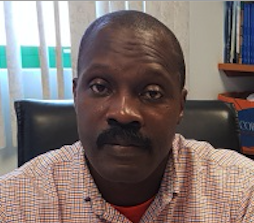The Chairman of the Barbados Union of Teachers (BUT) Education Reform Committee, Dr Ian Marshall, has slammed the government’s proposed education reform plans, describing them as “faddish and devoid of serious intellectual rigour and analysis”.
As the government continues to promote its reform proposals, dubbed Education Transformation, the BUT group has staked its position – the plans must be backed by a strong policy framework, transparent processes, and a clear alignment with economic realities.
Speaking at an event organised by the BUT, titled Caribbean Teachers Talk 3:50 & Beyond, Dr Marshall said the reforms were “long in political expediency but short on contextual applicability”.
One aspect of the reform plan is the introduction of a new school certification called the Barbados National Secondary Diploma (BNSD), aimed at showing student competence in certain areas. Dr Marshall questioned the rationale behind this diploma, arguing that in his experience, the previous Barbados Secondary School Leaving Certificate was not widely used to help individuals advance academically or acquire jobs.
“What value is such a qualification in circumstances where other qualifications, namely CSEC (Caribbean Secondary Education Certificate) and CAPE (Caribbean Advanced Proficiency Examination), supersede them and for which there is greater currency in the marketplace?” he queried.
Further criticising the reform efforts, Dr Marshal said that many attempts to reform the education system over the years have been too heavily rooted in political agendas, resulting in failure or partial execution. He argued that reform must be grounded in national development, equity, and equality, rather than subjected to political will.
Regarding the proposed deployment of 22 master teachers across secondary schools, Dr Marshall said there needs to be more clarity on the concept which he described as not new. He called for a clear policy on the selection and recruitment of these master teachers, to ensure transparency and avoid potential nepotism or cronyism.
He said: “In 2010, at an OECS (Organisation of Eastern Caribbean States) conference, it was long advocated that we need to have master teachers as part of an ensemble of other measures to professionalise the teaching service and incentivise teaching. Now let us be realistic, there are 21 public secondary schools and 69 public primary schools, [and] even if we use the secondary schools only, we would need far more than 22 master teachers.
“There are several disciplines within schools, so are we going to have a master teacher for all disciplines? Are we going to have a master teacher for those who teach, let’s say, mathematics at the junior level and one for the senior level? The next question is what is the criteria for selection of master teachers? Is nepotism and cronyism going to be the order of the day? And if so, what is the impact on the morale of those teachers who are working tirelessly in the schools that are often forgotten?” he questioned.
Dr Marshall also emphasised the need for the education system to align with the economic realities of Barbados, rather than adopting a “one-size-fits-all” approach. He queried the deeper meaning behind the government’s reform slogans, such as Each One Matters and Leave No Child Behind, suggesting they were more focused on public relations than substantive policy.
“On and on we go using PR (public relations) and glossy brochures to obfuscate the policy churn,” he said.
In his critique, Dr Marshall drew comparisons to the education reform process in Finland following the Second World War. He noted that Finland’s prosperous economy, driven by the success of the Nokia corporation, was supported by an education system tailored to meet the employment needs of its main economic driver.
He asked: “What is our Nokia in Barbados, what is our educational policy juggernaut? What is the philosophy that will drive our educational reform effort?”
sheriabrathwaite@barbadostoday.bb




